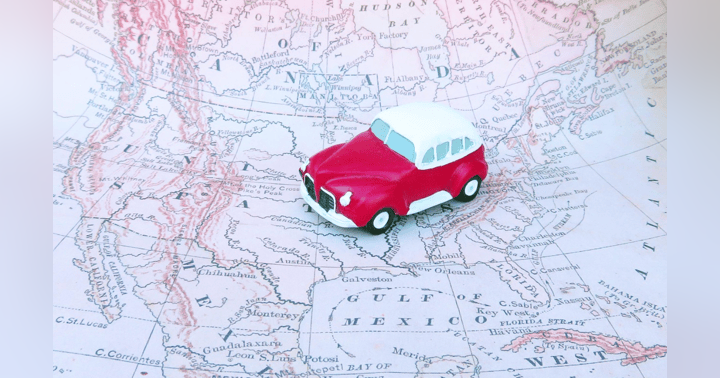The New Year for Intentional Expats
The New Year for Intentional Expats
As we approach the end of the year, it’s fairly natural to reflect on where we’ve been and where we’re going, especially when moving and living overseas. In order to stay on top of our "super-sized" lifestyle it's important to take super-sized action.
For those of us navigating life as expats, this period of introspection takes on added significance. Our journey, the expat experience, is one filled with opportunities, challenges, and the constant balancing act of integrating the old with the new, the near with the far, the familiar with the exotic, the home with the away.
In a recent podcast, we enumerated all the extra parts of the expat life that we have to organise! Consider the following as a reminder, look for the parts where you are strong and identify the parts that could be improved. Here’s a guide to making the most of your expat life while planning for a fulfilling future in the year ahead. Consider this a Checklist for the New Year.
Embracing the Expat Identity
When you’re building a life abroad, the question isn’t just what goals you’ll achieve but who you’ll evolve into. Will you become the resilient professional thriving in a new corporate culture? Or the digital nomad who is willing to shiftshape? Or the linguist connecting deeply with locals? Or the parent fostering stability for your children amidst change?
Does our identity as expats shape our habits? Or do our habits shape our identity?
I recently reviewed James Clear’s book "Atomic Habits." Clear’s idea that "the most effective way to change our habits is to focus not on what we want to achieve, but on who we wish to become" serves as a powerful lens for everyone but most especially expats. We tend to super-size our lives when we move to another country. There tends to be more bureaucracy, more language, more inter-cultural challenges, more movement, more negotiations and just in general more thinking required!
Blending Old and New Lives
Living abroad doesn’t mean leaving your former self behind. Instead, it’s about bringing aspects of your previous life—financial habits, health routines, and relationships—into a new environment.
For example, maintaining a consistent approach to fitness or budgeting can provide stability amidst change. If you had a habit of morning runs or gym visits back home, finding local parks or fitness centers to continue this practice can help you adapt while staying grounded. Similarly, your approach to managing finances, such as saving or investing, can be tailored to align with the financial systems of your host country.
Social connections also play a vital role. Staying connected with friends and family back home through regular calls or visits can offer emotional support, while forging new relationships with locals and fellow expats helps build a sense of belonging in your new community. Even small acts, like bringing cherished recipes from home into your kitchen abroad or incorporating local ingredients into familiar dishes, create a bridge between the old and new, enriching your daily life.
A Year-End Review with a Twist
December is a natural time for reflection and planning. In the podcast, we introduced the idea of a "13-month year," where the planning for the next year begins now. Use this month to:
-
Reflect on your personal and professional satisfaction: Take some quiet moments to ask yourself meaningful questions. Are you feeling fulfilled in your current roles—whether as a professional, parent, or partner? Write down what’s been working well and what hasn’t, and consider small changes that could make a big impact in the year ahead. What would you prefer more of and what would you prefer less of in your expat lifestyle?
-
Tune into corporate trends and opportunities: Look to your company or industry for clues about the future. Are there new projects, restructuring plans, or emerging technologies on the horizon? Staying informed can help you position yourself as a valuable contributor and avoid surprises. Where would you like your career to go next year?
-
Evaluate and invest in your growth: What skills or certifications could help you thrive in the coming year? Whether it’s picking up a new language like Spanish or diving into a professional course, investing in yourself is always a good plan. Think about small, achievable steps to expand your horizons. What is the behaviour that will make you 1% better?
Family and Practical Considerations
For expats with families, planning takes on additional layers of complexity. From children’s schooling to a spouse’s career aspirations, we pack these up and carry them with us. But each of these elements require careful thought. Here are some strategies to consider:
-
Education: Research school transitions and curriculum differences to ensure continuity.
-
Healthcare: Evaluate insurance options and local healthcare standards, especially if you’re older or have specific medical needs.
-
Emergency Preparedness: Build an emergency fund and ensure tax and legal documentation are up-to-date - yes, this frequently seems like a chore but we build a sense of empowerment when we tackle this mountain!
Emotional and Psychological Preparation
Transitions can be emotionally taxing. Maintaining good communication with your family and community is really important. Additionally, fostering psychological resilience can help you handle uncertainty. Here are some actionable strategies:
-
Establish routines: Create daily or weekly rituals that ground you, such as family dinners, weekend explorations, or personal journaling.
-
Join expat communities: Participate in local expat groups or cultural exchange programs to build a sense of belonging.
-
Practice mindfulness: Engage in mindfulness practices like meditation or yoga to reduce stress and stay present.
-
Seek professional support: Don’t hesitate to consult therapists or counselors who specialize in expat issues if the adjustment feels overwhelming.
-
Celebrate small wins: Acknowledge milestones, like mastering a new phrase in the local language or navigating a cultural tradition.
-
Stay connected with loved ones: Schedule regular video calls with friends and family back home to maintain a sense of continuity and support.
-
Plan for self-care: Make time for activities that recharge you, whether it’s reading, hiking, or enjoying local cuisine.
The Transition Toolkit
A successful potential relocation or transition hinges on being as prepared as you can possibly be. This includes thinking, acting and communicating in a coherent manner. Key components of your toolkit might include:
-
A comprehensive checklist of relocation documents - immigration papers, visas, vehicle papers, health-care documents etc.
-
Strategies for supporting children through educational transitions - working with schools, therapists, coaches and family;
-
Resources for staying connected with your broader community - online communities, groups, professional organisations etc;
Final Reflections on Being an Intentional Expat
As you chart your pathway forward, remember that your habits are the "compound interest of self-improvement". By focusing on your trajectory rather than immediate results, or what is right in front of us, we can gain a longer and more effective runway to success, and by doing so cultivate a life that’s not only successful but deeply fulfilling.
Take your time to reconnect with loved ones, celebrate your achievements, and plan for the person you wish to become in the year ahead. Here at Nomadic Diaries we wish you a year filled with all you would prefer to enjoy!
Cheers,
Doreen




